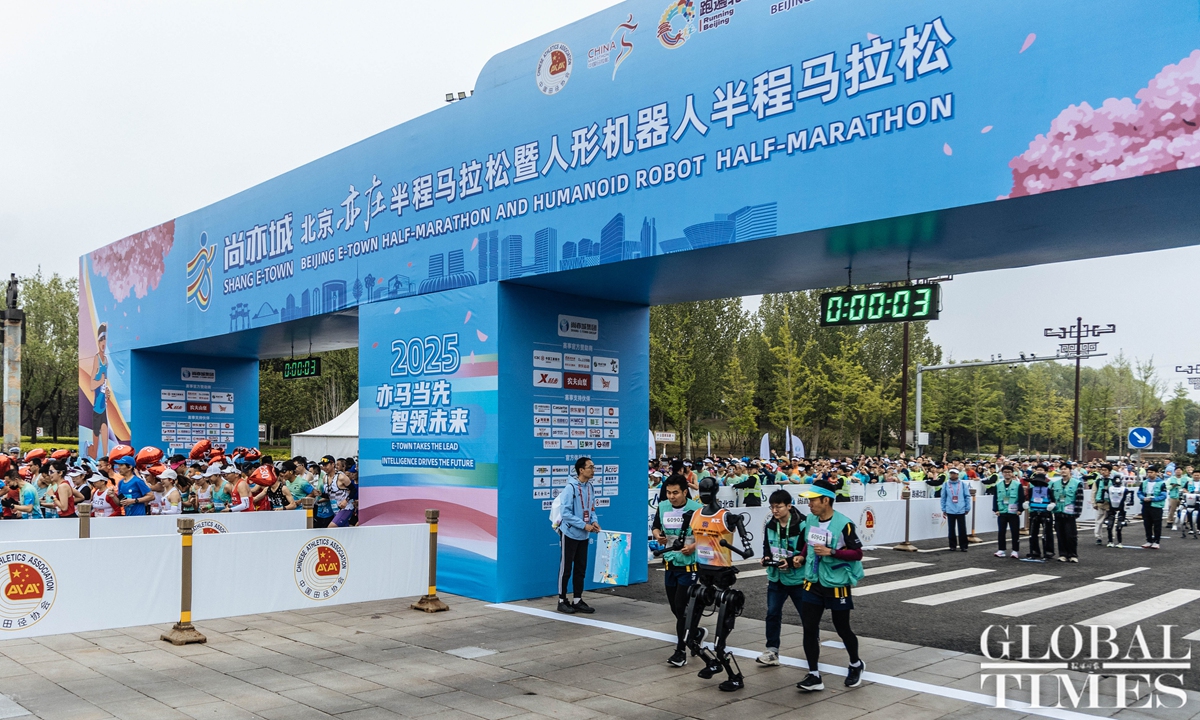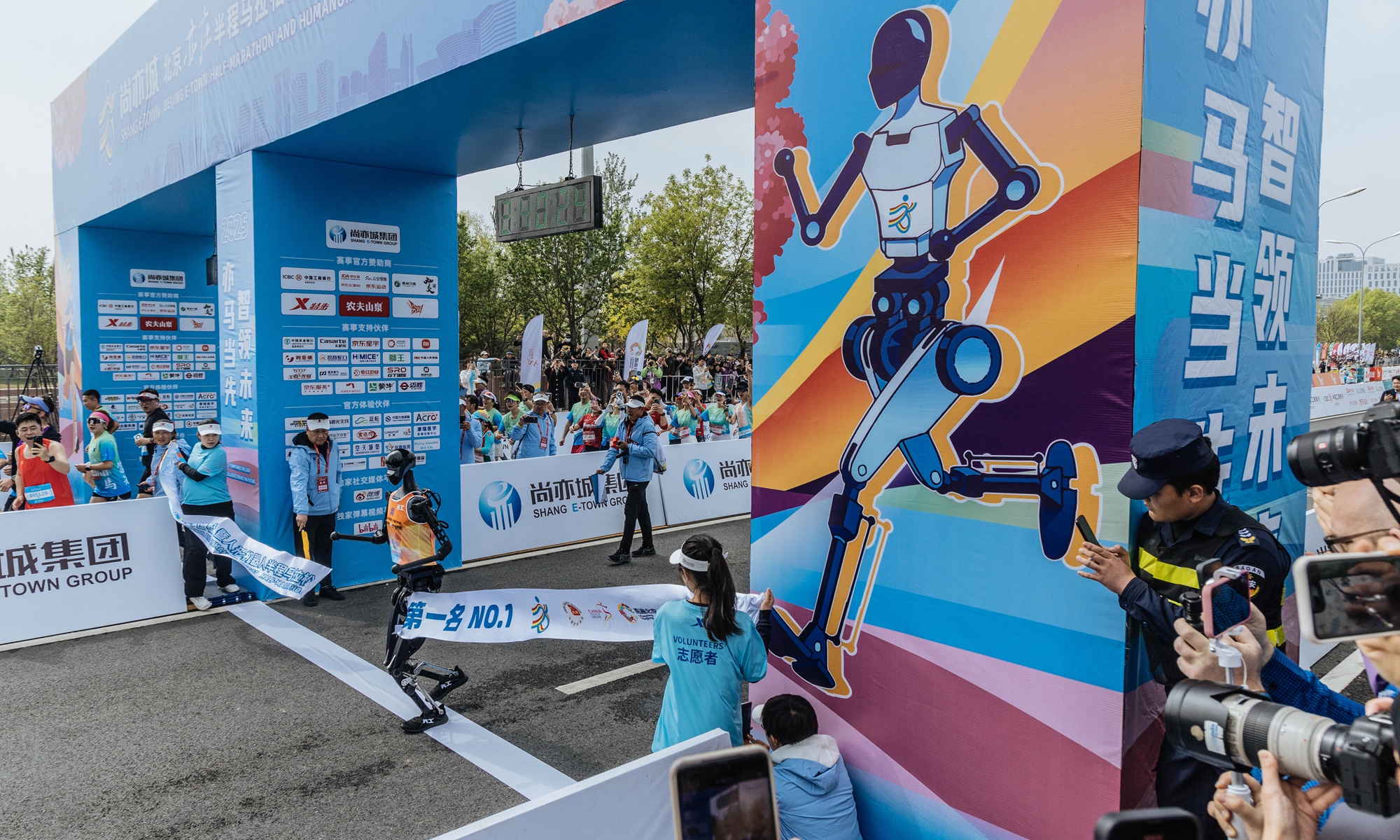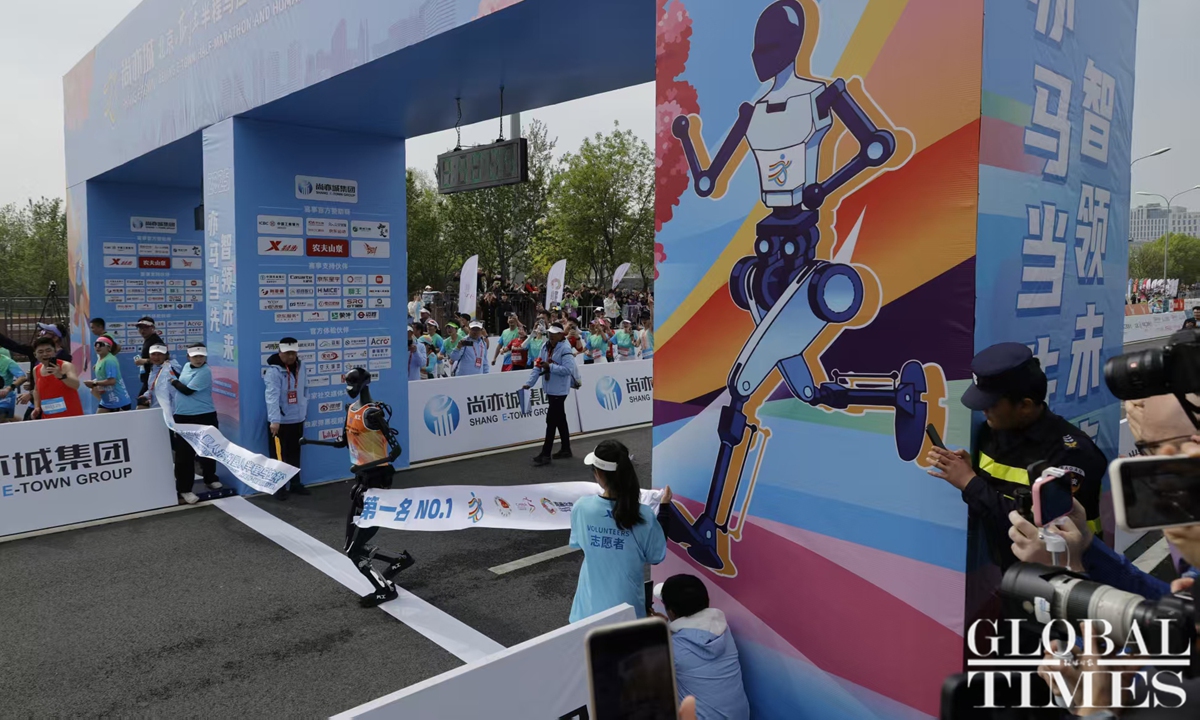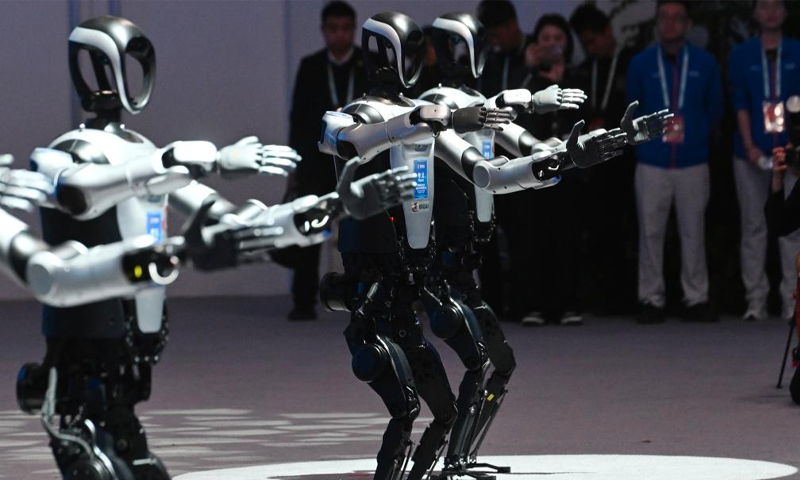Beijing hosts world's first humanoid robot half-marathon; Home-developed Tien Kung Ultra crowned champion

Photo: Li Hao/GT
After approximately 2 hours and 40 minutes, the Tien Kung Ultra robot, developed by China's National and Local Co-built Embodied AI Robotics Innovation Center, became the first to cross the finish line at the world's inaugural humanoid robot half-marathon, held in Beijing on Saturday.The Global Times reporters at the scene observed that the robot came to a smooth stop in the waiting area after completing the 21-kilometer course, showing no visible signs of "fatigue." Human marathon participants who finished the race gathered around to take photos with the pioneering robot. Surrounded by cheering spectators, operators then guided Tien Kung Ultra to the award ceremony area.
In addition to the Tien Kung Ultra, multiple advanced humanoid robots including Unitree's G1, Leju Robotics' Kuavo, and NOETIX's N2, among others, participated in the event.
Accompanied by the cheers of the crowd, the starting gun fired at 7:30 am, and the humanoid robot athletes and human runners started running simultaneously. Many spectators brought professional filming equipment to capture the moment of the world's first robot half-marathon.
Right from the start of the race, the Tien Kung humanoid robot took an early lead, demonstrating a significant speed advantage.
Notably, this event witnessed robots running along with human runners for the first time. They were separated with physical barriers to ensure safety, and followed with different competition rules and completion time standards.
The robots started sequentially at one-minute interval following a gunshot signal. Supply stations are set up along the track, where teams can replace batteries for robots, swap robots, and rotate support staff, the Global Times has learned from the event organization team.
To adapt to long-distance running, some robots feature specialized designs, including hot-swappable battery system that allow uninterrupted operation thereby enhancing endurance. In material selection, some are equipped with protective footwear, while others integrate abrasion-resistant attachments on their feet, aiming at tackling challenging terrain.
During the pre-competition preparations, Global Times reporters saw many staff members using support devices for their robots. Interestingly, the only robot in the competition with a humanoid face which called "Huanhuan" fell during the preparations and sustained minor bumps. Staff quickly assisted "her" for a check-up and continue the race.
A support staff member for the Tien Kung Ultra humanoid robot told the Global Times that their goal for today's competition is to secure the first place, and their primary duty was to manage battery replacements.
Two teams used NOETIX's N2 humanoid robot. A maintenance technician from the company surnamed Liang said they tested the robot's stability, ability to navigate complex terrain, resistance to interference and wind, and endurance to determine if it could complete the 21-kilometer course.
Another staff member added that the N2 humanoid robot took about 3 hours to complete the 21 kilometers. Despite its small size, it is fast and quite agile, he said with a smile.
Despite the overcast and damp weather, Liang said that it wouldn't have a significant impact on the N2.
"Just like humans, there are various supply stations along the 21-kilometer run," Ren Yawei, a representative from the National and Local Co-built Embodied AI Robotics Innovation Center told the Global Times after the event, noting that due to the limitations of battery endurance, the Tien Kung Ultra humanoid robot also underwent three to four battery replacements.
"We had previously optimized our battery-swapping technology to enable rapid replacements, keeping each swap within about three to four minutes to ensure the humanoid robot could complete the race efficiently and steadily," said Ren.
These technological advancements align with broader industry momentum. China's embodied intelligence market is projected to reach 5.295 billion yuan ($730 million) in 2025, accounting for approximately 27 percent of the global market; the humanoid robot market is expected to reach 8.239 billion yuan, representing about 50 percent of the global share, according to a report released at China's second Chinese Humanoid Robot Industry Conference and Embodied AI Summit.
The humanoid half-marathon serves as a comprehensive technological validation platform for robots from various companies, not only testing product performance but also demonstrating the potential for industrial-scale applications, Ren stated, adding that the completion of this event further validates humanoid robots' capabilities in safety, stability, and operational efficiency, promoting applications in more scenarios.



